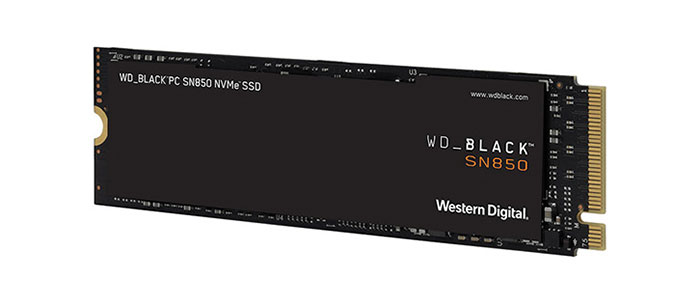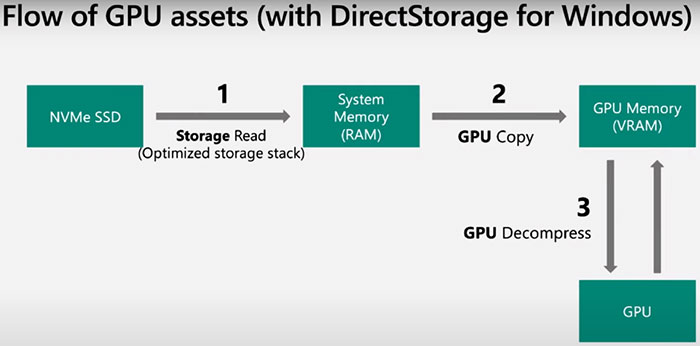During the Windows 11 launch event, Microsoft was quite vocal about Windows 11 being "the best Windows Ever for Gaming". Two major features were to spearhead this gaming attack; Auto HDR and DirectStorage – both features with roots in Microsoft's Xbox games console development. Since the launch event, it has been confirmed by Microsoft that DirectStorage "will only be available with Windows 11". In other words, Microsoft doesn't intend to bring this tech to Windows 10.

As a reminder of why you might want DirectStorage functioning on your Windows gaming PC – this feature was designed by Microsoft to speed the transfer of assets from storage to GPU, without bogging down your CPU. As well as the obvious benefit of facilitating faster game loads, it has impacts on the draw distance and texture variety you might see in games. Open world games are set to perhaps benefit the most from DirectStorage, minimising or eliminating transitional loading screens.

The latest published Windows 11 system requirements don't say how big your Windows 11 SSD has to be to take advantage of DirectStorage. All it says is that you need at least 64GB capacity fixed storage for Windows 11, and DirectStorage specifically "requires an NVMe SSD to store and run games that use the Standard NVM Express Controller driver and a DirectX12 GPU with Shader Model 6.0 support."
Windows 10 to Windows 11 upgrades roll out starting 2022
At the reveal event we heard that Windows 11 would be available starting 'holiday 2021' but that doesn't seem to be the case for upgraders. The official Windows Twitter account has clarified that "Windows 11 is due out later in 2021 and will be delivered over several months. The rollout of the upgrade to Windows 10 devices already in use today will begin in 2022 through the first half of that year."
Thus, if you have a happily running Windows 10 system now, it might not be worth fretting about Windows 11 features and hardware specs. There is a lot of finessing time between now and 2022, and I think it is fair to say things are quite fluid – rather than set in stone. Microsoft faced criticism for vigorously trying to move people from Windows 7/8/8.1 to 10 a few years back, is it really going to turn 180 degrees on this philosophy and prevent a major swathe of users from willingly upgrading?
Already there are signs that it is removing the requirement for TPM for 'Special Purpose' systems, and for countries that don't use Western encryption technologies, like China and Russia.
The requirement for a very modern processor for Windows 11 support (Intel 8th gen Core or newer, AMD Ryzen 2000 or newer) appears to me to be a requirement for new machines from systems makers, which isn't going to apply to upgraders. Looking back at Windows 10 processor requirements via that link, I see that my old Haswell Core i7 desktop is not supported, but it had no problem upgrading to the latest version of Windows 10.






